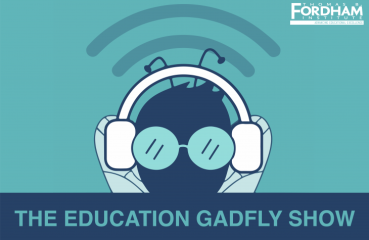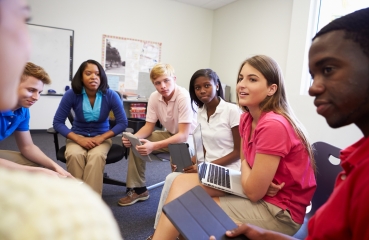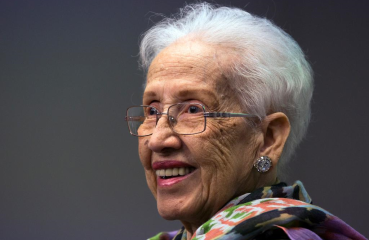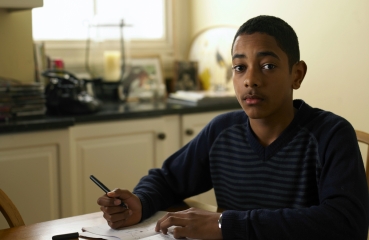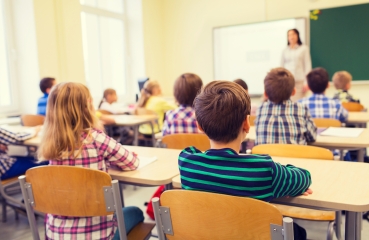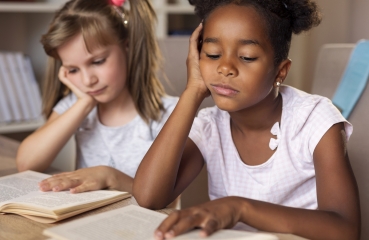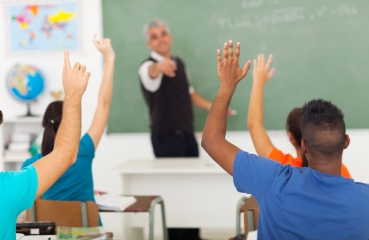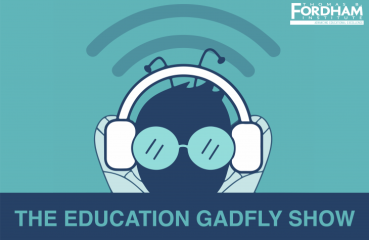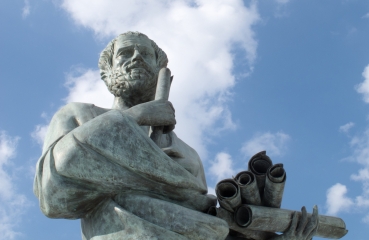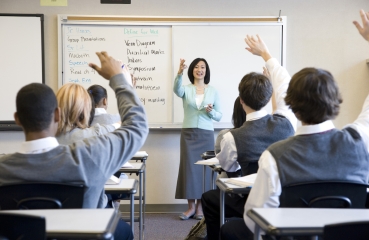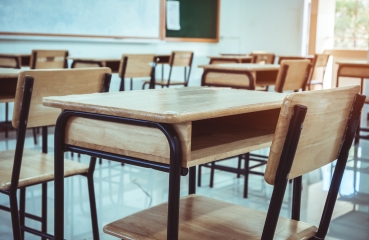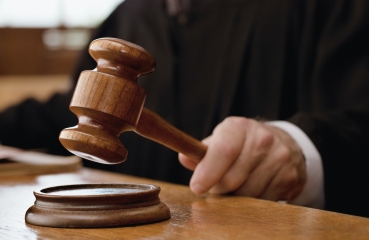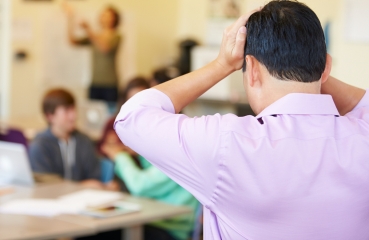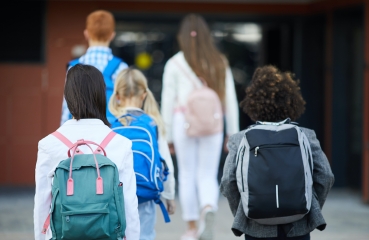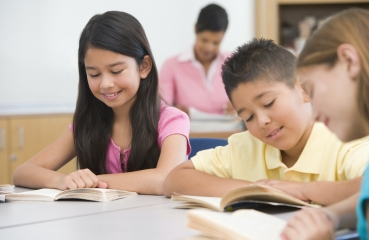Civility, democracy, and education
Jennifer FreyMost of our founding fathers believed that a democracy is only as good as its citizens, since democracy only flourishes with citizens who are capable of governing themselves. But we have lost our understanding of the connection between virtue, self-government, and democracy. Indeed, few students today learn anything about virtue, let alone see any connection between it and the fate of our republic.
Online courses and college degree completion
Jeff MurrayStudents’ inability to enroll in required courses—due to capacity or scheduling constraints—can stymie progress toward a college degree. New findings published in Educational Evaluation and Policy Analysis suggest that online courses can help keep students on track to college graduation.
Boosting the effectiveness of STEM role models
Jeff MurrayProviding relatable role models for young people is a guiding principle by which STEM practitioners hope to motivate scientists of the future and diversify their ranks. Conscious of the importance of this endeavor, New York University researchers Jessica Gladstone and Andrei Cimpian examined the literature on role modeling to identify strategies for maximizing its motivational impact.
Build Back Better’s risks on early childhood education are manageable and outweighed by the benefits
Elliot RegensteinThe funding system for early childhood education envisioned in Build Back Better is far superior to the one we have now. But as always in public policy, the transition from one condition to another is fraught with risks.
Education’s enduring love affair with “luxury beliefs”
Robert PondiscioThe proof of a powerful idea is how well it sticks. Once you hear about it “you start to see it everywhere,” as Bari Weiss puts it. She was describing “luxury beliefs,” a phrase coined by Rob Henderson, an Air Force veteran and Ph.D.
Conservatives: Let’s focus on winning policy, not just winning politics
Karen NussleThere’s been lots of jabber lately about what the upset win by Glenn Youngkin in the recent Virginia gubernatorial race means for education policy.
Proof that online credit recovery has been on the rise
Adam Tyner, Ph.D.Recent years have seen a move to eliminate homework and relax grading standards, and struggles by teachers and students to do their work during the pandemic have accelerated this trend. Some educators and commentators, however, fret that these new practices amount to lowering standards.
Education is progressive. Schools are conservative.
Robert PondiscioEditor’s note: This was first published by Newsweek.
Attacking gifted education is bad policy and bad politics
Brandon L. WrightEducation for high achievers has come under siege in blue cities and states as the national focus has shifted to racial equity in the aftermath of George Floyd’s murder. But such attacks, even when well-intentioned, are misguided. They target a problem’s symptom rather than its cause, and in doing so, harm students and defy parents.
Teaching gratitude beyond Thanksgiving
Jennifer FreyOnce a year, parents of young children can look forward to their kids coming home from school with turkeys drawn by hand and heartwarming lists of what they are grateful for, with loving parents and helpful teachers usually at the top of the list. This happens just before families pack up and travel to be together and give thanks for all the blessings of the year.
The centrality of instructional materials: My experience with Doug Lemov’s Reading Reconsidered Curriculum
Daniel BuckI’m a rather dreadful cook. Nonetheless, in the summer, with easy access to farm-fresh vegetables and the internet’s profusion of recipes, my wan table occasionally turns into something resembling a feast. And this phenomenon works in reverse.
Redesigning early college credit to reach underserved students
Jeff MurrayIn 2012, Tennessee lawmakers created the Statewide Dual-Credit program (SDC) to help more students earn college credit while completing high school.
The state of computer science education
Jessica PoinerIn early November, the Code.org Advocacy Coalition, the Computer Science Teachers Association, and the Expanding Computing Education Pathways Alliance teamed up to release the 2021 State of Computer Science Education.
Education Gadfly Show #797: Why debunked reading practices continue to spread
What is virtue and why does it matter?
Jennifer FreyContemporary education has become too technocratic and divorced from virtue. This is a disservice to students because it robs them of what a classical education provides: the tools students need to succeed, not just academically and professionally, but in the deep and abiding sense of being able to flourish as free and good human beings.
Effectively implementing social-emotional learning means getting the terminology right
William Rost, Jeremy SmithTwo charter networks, Uplift Education and Distinctive Schools, have provided models for supporting social-emotional learning (SEL) that other schools should emulate.
How media coverage of critical race theory misses the point
Robert PondiscioIt is not a controversial statement to say that the debate over critical race theory in schools has shed more heat than light. This is not surprising. When a relatively obscure and arcane academic field suddenly becomes a high-profile political football, hotly debated on cable news shoutfests, it is almost certainly because it has been reduced to bumper-sticker simplicity.
A descriptive look at the structure of gifted programs in Washington State
Amber M. Northern, Ph.D.Gifted education has been a much-debated issue
Reconnecting knowledge and virtue
Jennifer FreyEditor’s note: We're happy to introduce Jennifer Frey, who will be writing regularly for the Fordham Institute over the next year. She is an associate professor at the University of South Carolina, where she focuses on virtue ethics.
Lessons on protecting viewpoint diversity in classrooms
Robert Pondiscio, Tracey SchirraA story that became a flashpoint in national conversations around the effects of “CRT bans” is reaching its denouement: This past week, a hearing officer appointed to adjudicate the case ruled that the Sullivan County, Tennessee, school board was justified in
Not everyone’s on board with turning schooling into therapy
Robert PondiscioSchools have been concerned with character formation and values since Plato sat with students under an olive tree. Today’s “social and emotional learning” is consistent with this age-old impulse. But in its form and function it can represent something different—and more worrisome—than its progenitors, especially when employed without full discussion of its priorities and methods.
The case for K–2 testing
Dale ChuUnder federal law, states must assess students annually in reading and math in grades 3–8 and at least once during high school, as well as testing science once in elementary, middle, and high school.
How reopening decisions affected public school disenrollment
Amber M. Northern, Ph.D.During the first full school year after the onset of the Covid-19 pandemic, enrollment in U.S. public schools fell by about 1.1 million students, or 2 percent of prior K–12 enrollment.
Students are interested in computer science, but many of them lack access
Jeff MurrayResults of a recent survey published by Amazon’s Future Engineer offshoot show several disconnects between the interests, experiences, and aspirations of U.S. students in regard to computer science.
Bill de Blasio is decimating gifted education in New York. Will Eric Adams save it?
Brandon L. WrightMayor de Blasio is axing New York City’s long-standing gifted education programs. He plans to replace them with something else, but his proposal is almost entirely wrong. Fortunately, Eric Adams, who’s almost certain to replace him in January, has a vision of gifted education that’s mostly right, and he’ll enter office in time to fix de Blasio’s blunders.
Seeking a constitutional shortcut to educational excellence
Dale ChuDo students have a right to a high-quality education? A proposed ballot initiative filed in California last Thursday says yes.
Sorry Edutopia, the research base on project-based learning remains weak
Daniel BuckAs one paper put it, there is a “paucity of robust research” on project-based learning. Yet in the ed-school world and in many journals and professional organizations, it’s often touted as a pedagogical gold standard.
How well do diverse-by-design charter schools work?
William RostThe persistence of racial segregation between and within school districts has motivated some in the school choice community to develop diverse-by-design charters (DBDCs), which are defined as schools without a 70 percent majority of students of any race or ethnicity, plus 30 to 70 percent low-income pupils.
How well are schools teaching disadvantaged students to read? In California, it depends where you live.
Todd CollinsHow do we know if a school district is doing one of its most basic jobs—teaching students to read? That’s one of the main questions the California Reading Coalition, which I helped organize earlier this year, set out to answer with the California Reading Report Card, released in September.
